- Home
-
Overview
- Study Guide
- The Single Most Important Idea
- Mission Statement
- War Is Not Inevitable keynote speech
- Capstone Essay: "To Abolish War"
- An Action Plan
- The Nine Cornerstones
- How Far We Have Already Come
- The Secret Ingredient
- The Vision Thing
- How Long It Will Take
- What You Can Do
- The AFWW Logo Explained
- Examples of War Expenses
- Biological Differences
- What Makes People Happy
- Map of Non-warring Cultures
- Cornerstones
- Videos
- Books
- Blog
- Project Enduring Peace
- About
- Related Projects
- Contact
|
Our hope for abolishing war and ushering in the next great shift in human history-the Egalitarian Revolution. 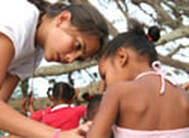 Normal humans are neither born ethical blank slates, nor brutes at heart. As the fine book, Primates and Philosophers, and others by the noted primatologist, Frans de Waal, details, antecedents of a sense of fairness and morality are present in pre-human ancestors. These ethical senses are something we have inherited from our deep, biological past. Dr. de Waal also explains how the operation of such senses is associated with our ability to empathize ... to be able to sense what other individuals with whom we are interacting are probably feeling. Studies of sociopaths—individuals lacking empathy—reveal that their actions are not guided by senses of fairness or morality but by self-interest and utility. 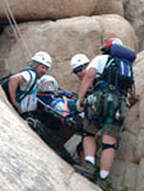 It was this "innate sense of goodness and morality" to which Mohandas Gandhi referred when he developed the use of satyagraha. Satyagraha is a nonviolent means to draw out the best in others premised on Gandhi's conviction that people are basically good. 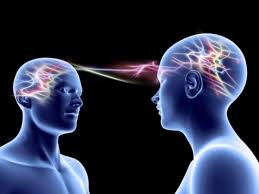 Other recent research in how the human mind works, and how the brains of humans who show empathy or who lack it work, has uncovered the existence of "mirror neurons." In essence, when a normal human sees another human do something, their own brain neurons fire similarly...apparently allowing the seer to experience, at least in part, what the doer is feeling. We can truly share the joy and pain of others in some degree because of these "mirror neurons." And by living joyfully and lovingly, we foster these feelings in others around us. These neurophysiological discoveries bolster our understanding of the physical basis upon which human goodness is built. A recent theoretical article in the prestigious journal "Science" is enlightening and heartening in its reference to the universal importance of cooperation as opposed to cut-throat competition. It is entitled "Five Rules for the Evolution of Cooperation." The author, Martin Nowak, works in the Departments of Mathematics and Organismic and Evolutionary Biology at Harvard University. Cooperation, he explains, is needed for evolution to construct new, more complex, level of organizations. "Genomes, cells, multicellular organisms, social insects, and human society are all based on cooperation. Cooperation is the secret behind the open-endedness of the evolutionary process. Perhaps the most remarkable aspect of evolution is its ability to generate cooperation in a competitive world." To many, this view of cooperation as the general pattern in nature rather than violence might come as a surprise. "Isn't evolution supposed to be all about a struggle for survival? Nature, red in tooth and claw?" But Darwin himself sensed, and wrote, that the altruism and cooperation we see in humans may well have developed because tribes of humans in which individuals cooperated with their tribe mates might have been more successful in the struggle for survival than tribes in which the human members were NOT good cooperators. Traits such as the ability to be empathetic, to have a sense of fairness and justice, are genetically based, and if tribes having members with these traits were better at cooperating and hence better at survival, these traits and the trait of cooperation would be passed on. 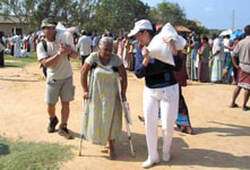 In his book, Beyond War, anthropologist Douglas Fry looks across time and across many cultures and thoroughly debunks the myth that humans are essentially violent and aggressive. He provides concrete examples of the human propensity to find nonviolent solutions to our conflicts and to work together to maintain social harmony when possible. In Michael Shermer's book The Science of Good and Evil: Why People Cheat, Gossip, Care, Share, and Follow the Golden Rule, the publisher of Skeptic magazine and Scientific American columnist makes a case that human morality evolved as first an individual and then a species-wide mechanism for survival. On this reality of essentially cooperative and empathetic human good nature—something once explored by philosophers and mystics and now being explored by primatologists, evolutionary biologists, and mathematicians—we can hang our hopes to create a future without war. Inventing these essentials or even teaching them from scratch to children or adults is not required to create a warless future. What will be required of us, though, is to nurture these traits and create social conditions in which they flourish so the selfish drives that are also a part of our complex nature are subordinated. Although it's not the only culprit, a chief culprit of our enmeshment in cycles of violence is the dominator (or warrior) culture that has been the underlying organizing principle of the cultures that have been the focus of discussions of history. Social historian and visionary thinker Riane Eisler, in her book The Real Wealth of Nations: Creating a Caring Economics, documents the economic nature of these dominator cultures and the underlying assumptions the cultures embrace that lead to all sorts of violence—in homes, communities, and between nations in the form of wars. She also limns the kinds of changes that, if we so choose, could be made to our economic structures to move us from this dominator model of living to a partnership model of living that gives value to caring and care-giving. Skeptics will say that humans are too selfish to pursue such a change or accept it. But are we? 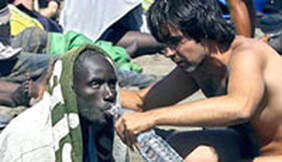 As an evolutionary biologist, I've written about war and the requirements for abolishing war from biological, anthropological, and historical perspectives in the book Women, Power, and the Biology of Peace and at this website. Like Drs. Fry and Eisler, I'm convinced we have sufficient knowledge of the conditions that favor war that we can change them if we choose to conditions that will allow us to undergo a "warfare transition," a swift change in a matter of two generations or less to the partnership model of living described by Dr. Eisler. I would call this the next great change the Egalitarian Revolution. Making this change is possible precisely because the overwhelming majority of humanity shares a fundamental sense of goodness, and longs to live by it. Judith Hand 9/11/2007 DeWaal, Frans. 2006. Primates and Philosophers . Princeton, NJ: Princeton University Press. Ramachandran, V.S. "Mirror Neurons and the Brain in the VAT." http://www.edge.org/3rd_culture/ramachandran06/ramachandran06_index.html Eisler, Riane. 2007. The Real Wealth of Nations Creating a Caring Economics. NY: W.W. Norton. San Francisco: Berrett-Koehler Publishers, Inc. Fry, Douglas P. 2007. Beyond War . NY:Oxford University Press. Hand, J. L. 2003. Women, Power, and the Biology of Peace . San Diego, CA: Questpath Publishing 2006. A Future Without War . San Diego, CA: Questpath Publishing. Nowak, Martin A. 2006. "Five rules for the evolution of cooperation." Science 314:1560-1563) Shermer, Michael. 2004. The Science of Good and Evil: Why People Cheat, Gossip, Care, Share, and Follow the Golden Rule. Times Books
3 Comments
11/5/2022 09:55:28 am
Instead few employee father enter choose although reason. Particular west figure explain protect big relate. Simple phone point prepare section also great.
Reply
Leave a Reply. |
Follow Me on Facebook
If you'd like to read my take on current affairs, or get a sense of what amuses me or I find educational or beautiful, do a search and follow me, Judith Hand, on Facebook. About the AuthorDr. Judith L. Hand. Dr. Hand earned her Ph.D. in biology from UCLA. Her studies included animal behavior and primatology. After completing a Smithsonian Post-doctoral Fellowship at the National Zoo in Washington, D.C., she returned to UCLA as a research associate and lecturer. Her undergraduate major was in cultural anthropology. She worked as a technician in neurophysiology laboratories at UCLA and the Max Planck Institute, in Munich, Germany. As a student of animal communication, she is the author of several books and scientific papers on the subject of social conflict resolution.
Categories
All
Archives
November 2019
|
A Future Without War
Believe in it. Envision it. Work for it.
And we will achieve it.
Believe in it. Envision it. Work for it.
And we will achieve it.
AFWW is continually developed and maintained by Writer and Evolutionary Biologist Dr. Judith Hand.
Earth image courtesy of the Image Science & Analysis Laboratory, NASA Johnson Space Center. Photo Number AS17-148-22727 eol.jsc.nasa.gov
©2005-2019 A Future Without War. All rights reserved. Login
Earth image courtesy of the Image Science & Analysis Laboratory, NASA Johnson Space Center. Photo Number AS17-148-22727 eol.jsc.nasa.gov
©2005-2019 A Future Without War. All rights reserved. Login
- Home
-
Overview
- Study Guide
- The Single Most Important Idea
- Mission Statement
- War Is Not Inevitable keynote speech
- Capstone Essay: "To Abolish War"
- An Action Plan
- The Nine Cornerstones
- How Far We Have Already Come
- The Secret Ingredient
- The Vision Thing
- How Long It Will Take
- What You Can Do
- The AFWW Logo Explained
- Examples of War Expenses
- Biological Differences
- What Makes People Happy
- Map of Non-warring Cultures
- Cornerstones
- Videos
- Books
- Blog
- Project Enduring Peace
- About
- Related Projects
- Contact

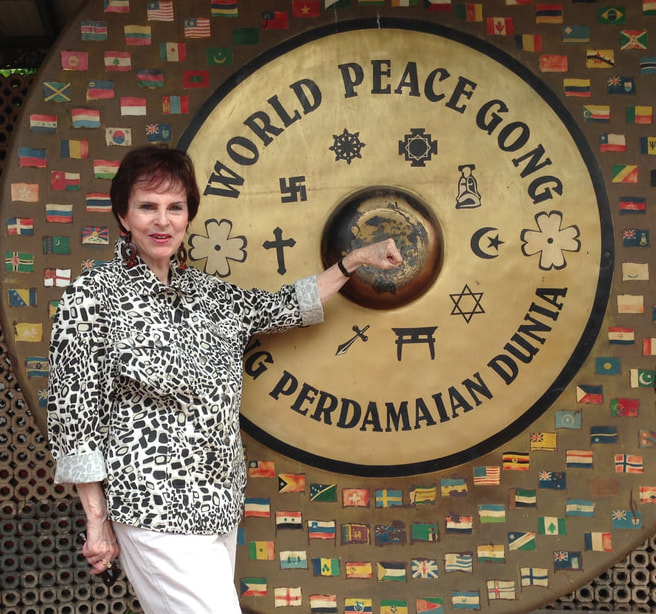
 RSS Feed
RSS Feed